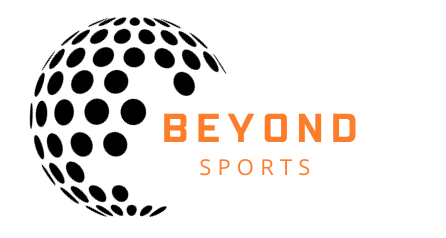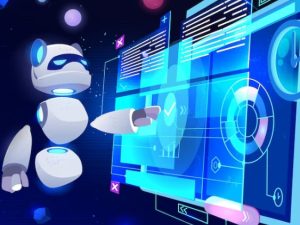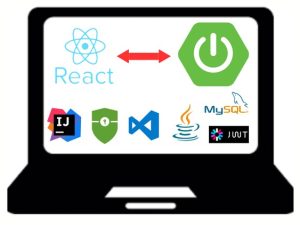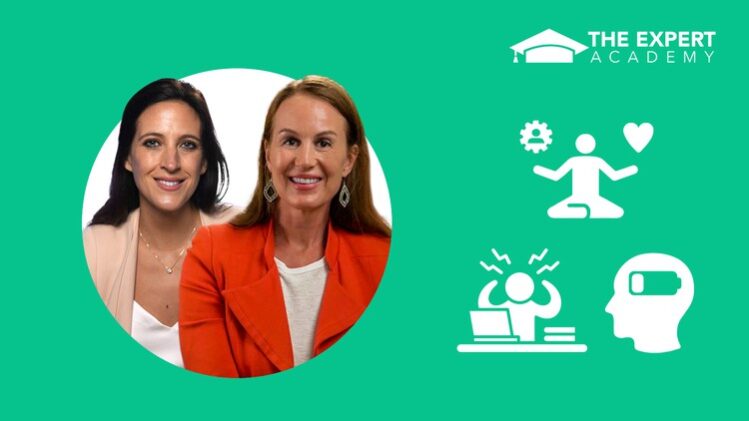Are you ready to conquer stress, manage your time effectively, and prevent burnout? This course equips you with the tools and knowledge to tackle these challenges head-on and live a more balanced and fulfilling life.
The course begins by delving into the intricate relationship between stress and time management. You’ll learn how stress impacts your body and cognitive processes, hindering your ability to use time efficiently. Through a combination of neurological insights and practical strategies, you’ll discover techniques to evaluate and manage stress during crisis situations. The course empowers you to overcome cognitive distortions, optimize decision-making, and conserve mental resources.
Technology’s influence on stress is also explored, particularly the impact of smartphone usage. You’ll gain awareness of how technology affects stress levels and learn strategies to regulate stress, find balance, and increase joy in the digital age.
Moreover, the course addresses the prevalent issue of burnout. You’ll learn to recognize the gradual onset of burnout, its physical and psychological manifestations, and the importance of prevention. With practical tips and three simple steps, you’ll acquire essential tools for avoiding burnout, including mind care, laughter, sleep, breathing, and movement. This knowledge is valuable not only for personal well-being but also for business leaders seeking to create a supportive, productive work environment.
Kindness is emphasized as a crucial aspect of boosting mental health and resilience throughout the course. By embracing the course’s teachings, you’ll develop a recipe for avoiding burnout, becoming your best self, and effectively managing challenges with maximum capacity.
Enroll now to take control of stress, master time management, prevent burnout, and unlock your potential for personal and professional success.
STRESS MANAGEMENT & BURNOUT PREVENTION
COURSE 1: STRESS MANAGEMENT
Stress is pervasive in society with so many negative physical and psychological effects. The recent pandemic has not helped matters. The good news is, we can take many actions to understand stress, reduce it, and manage our time more effectively. Stress can cause mental health issues, financial concerns, and decline productivity. However, eustress is a positive form of stress that helps us stay motivated, work toward goals, and feel good about life. Chronic stress can cause neuroendocrine dysfunction.
Download the Stress and the Brain worksheet to start your journey to a stress-free life!
HOW STRESS AFFECTS COGNITIVE SHORTCUTS
Cognitive bias is when we filter information to support an idea we already believe. While they may seem like they are always negative, they can help us see patterns, form connections, and find easier methods of doing things. However, they are not rational, they are assumptions. Cognitive traps or distortions are problematic, exaggerated forms of cognitive bias that have a negative impact. They trap us from seeing the big picture. Cognitive traps are situations where we assume only negative outcomes, we assume someone is thinking negatively of us, we consider emotions to be evidence of truth, and we view everything as black and white.
Download the Cognitive Biases worksheet.
Heuristics help explain human inconsistencies concerning judgment and decision making. They are mental shortcuts that enable quick judgments about the likelihood of unknown events. Biases can be identified in multiple ways. They can be group-specific, they can impact decision making, alter judgments, impact memory, and reflect motivation. Many biases are self-serving or self-directed. Age affects cognitive bias. Younger adults tend to have more cognitive flexibility.
Download the Biases and Heuristics worksheet.
Cognitive shortcuts are automatic cognitive patterns that people use for efficient decision-making. However, they can also be misused, resulting in biased decision-making. In this lecture, we will discuss how these shortcuts can be helpful, but also how they can be harmful. We will also go over information bias. We will also talk about how stress plays into this and give you coping mechanisms for combating stress. Remember to be mindful of your cognitive distortions.
Download the Stress and Habits worksheet.
METHODS FOR CHANGING HOW YOU THINK
In this lecture, we will talk about the Fogg Behavioural Model, factors in motivation, and factors that are sabotaging your efforts. This will help you to become more aware of how to hack your own mind for more efficiency. There is a lot to go over in this lecture, so if you need to go back and repeat it, feel free to do so.
Download the Designing Change Part 1 worksheet and search for The Behaviour Wizard online, which BJ Fogg and his team built to assist you in exploring the many forms of behaviour modification.
In this lecture, we will study methods to improve your abilities, identify your own biases, and use simplicity as a tool for organisational behaviour. Knowing how to actively develop talent is a skill in itself, and learning how to learn is an invaluable meta-skill that you can apply to anything.
Download the Designing Change Part 2 worksheet, which is the perfect way to get started.
Here, we will visit the Fogg Behaviour Model and learn about the prompts in more detail. We will also look at some real-life examples to demonstrate the effectiveness of implementing these prompts. Change is about programming yourself to do what you want.
Download the Prompting Change worksheet, which will help you design prompts for the changes you want to make.
CONCLUSION
Congratulations on making it to the end of the course! Throughout the previous lectures, we discussed how stress affects the human brain in ways such as impacting overall health and changing how the brain forms memories. We looked at how cognitive biases and traps can distort thinking in ways that cause stress. We also looked at how you can save time and mental fatigue from decision-making by using heuristics, how to overcome bad habits, how to apply minimalism, how to use Fogg's behavioural model. We hope you enjoyed learning about all the tools and techniques you can use to tackle the above problems so you can enjoy a future of wellbeing, in both mind and body.
COURSE 2: MANAGING DIGITAL STRESS
Cara takes us through some shocking statistics on how our stress levels are rising due to smart phone and social media usage.
Cara shares an example of how reducing blue light can improve your life.
Cara shares a funny story to highlight why you need to take breaks from your 'best friend' and set boundaries and helps you identify where your stressors lie.
Cara shares some practical tools to help you with stress and anxiety.
HOW TO DECLUTTER YOUR ONLINE LIFE
From too many emails to social media notifications, Cara explains what 'information overload' can do to your brain and shares 5 effective ways to declutter your online life.
WHY YOU NEED A DIGITAL DETOX
Cara shares some important messages about 'Digital Minimalism', how to practice the the 'Meaningful Scroll' and 5 ways to gently detox from your smartphone. Download the 'Tech Detox Planner'.
CHOOSING JOY & GRATITUDE
Cara talks about setting boundaries around tech and shares a story about a 'fake' recharge. Learn an exercise to help you find your 'real' recharges.
Cara advises on how you can plan daily joy and gratitude to minimise stress. Download the 'Joy Planner'.
RECAP & BONUS CONTENT
Cara recaps on managing stress in the digital age and shares some extra tips.
COURSE 3: BURNOUT PREVENTION
Cara defines burnout, takes us through some key statistics and identifies the warning signs to look out for. She shares her own experience of burnout and why she is passionate about helping others avoid a similar experience.
Cara explains what chronic stress does to our bodies and how we can manage overwhelm (using the overwhelm emergency checklist).
3 SIMPLE STEPS TO PREVENT BURNOUT
Cara introduces the 3-step strategy to prevent burnout; mind care, body care, soul care. She shares a story about John to demonstrate why we need to look after mind, body and soul - and not just one of them at a time.
Cara explains you can positively reframe your stress with 3 simple strategies. Download the 'Overwhelm Emergency Checklist'.
Cara discusses how laughter can help prevent burnout and offers insights for how to have a giggle during tense moments.
Cara demonstrates how to sit with uncomfortable feelings.
Learn why you need to nourish your mind with sleep. Cara shares 5 tips on how best to do this.
Cara talks about the importance of movement, nourishing the body with food, how to breathe correctly and offers an exercise to 'let go'.
Cara demonstrates a short exercise to help you release stress and trauma from the body and mind.
Cara discusses how we can often be our own worst enemy and how the 'inner critic' causes stress. Download the 'ABC Technique' supporting document to practice turning down your inner critic.
Download the 'PERMA Model', 'Gratitude - The 3 G's' and 'Joy Planner' supporting documents. Cara explains how to use the PERMA model to rediscover purpose and meaning in your life. She also explains the power of the '3 G's' and 'Joy Planner' for attaining gratitude and joy.
USING KINDNESS TO IMPROVE MENTAL HEALTH
Cara explains why practising acts of kindness can support your mental health.
Cara sets a weekly task for you to experience the benefits of helping others with kindness.
SUMMARY
Cara recaps how to avoid burnout using mind, body and soul care, and shares additional tools for prevention.
Productivity Hacks to Get More Done in 2018
— 28 February 2017
- Facebook News Feed Eradicator (free chrome extension) Stay focused by removing your Facebook newsfeed and replacing it with an inspirational quote. Disable the tool anytime you want to see what friends are up to!
- Hide My Inbox (free chrome extension for Gmail) Stay focused by hiding your inbox. Click "show your inbox" at a scheduled time and batch processs everything one go.
- Habitica (free mobile + web app) Gamify your to do list. Treat your life like a game and earn gold goins for getting stuff done!









